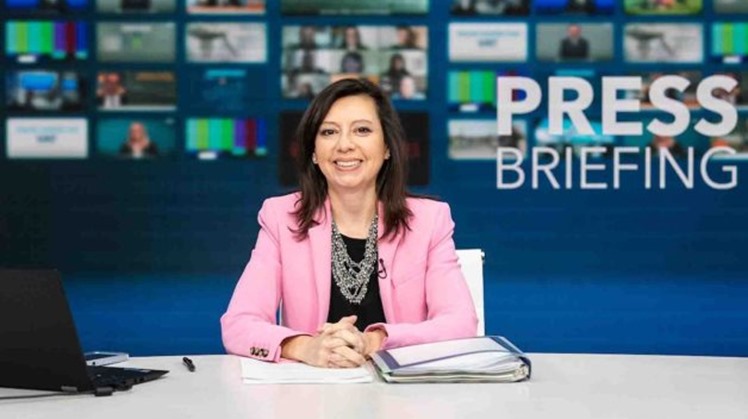Cairo – 5 October 2025: The International Monetary Fund (IMF) highlighted early signs of stabilization in Egypt’s economy following a series of bold policy moves.
Speaking during a press briefing on Thursday, IMF Communications Director Julie Kozack credited the Egyptian authorities for implementing critical reforms, including unifying the exchange rate and tightening both monetary and fiscal policies.
“These steps have begun to yield tangible results,” Kozack said, responding to a question from a journalist on Egypt’s recent economic progress and the timeline for upcoming IMF assessments.
Among the key developments, Kozack highlighted a significant decline in annual inflation to 12 percent in August, improved investor sentiment, and stronger-than-expected fiscal performance. She also noted a pickup in economic activity, stating: “Economic growth strengthened to 4.4% in FY2024/2025.”
The IMF has confirmed that the fifth and sixth reviews of Egypt’s $8 billion Extended Fund Facility (EFF) loan will be conducted together, with discussions expected to take place this fall.
The reviews, along with the first under the $1.3 billion Resilience and Sustainability Facility (RSF), are anticipated to conclude before the end of the year.
Talks are expected to intensify during the IMF-World Bank Group Annual Meetings, which begin October 13, with Egypt’s delegation led by Central Bank Governor Hassan Abdallah.
While macroeconomic indicators show progress, Kozack emphasized that deeper, longer-term reforms are essential. “It’s now critical for Egypt to move forward with deeper reforms,” she said, stressing the need to unlock growth potential, support job creation, and build resilience to future shocks.
Central to these reforms, Kozack said, is the implementation of Egypt’s state ownership policy and asset divestment program — both designed to enhance private sector participation and ensure fair competition. “These reforms are essential to level the playing field between public and private actors,” she noted.
On the sustainability front, Kozack pointed to steps taken under the RSF to integrate climate goals into economic planning. These include the launch of a renewable energy roadmap and efforts to improve climate risk monitoring in the financial sector. “These are important steps not just for Egypt’s economy, but for its people,” she concluded.
In a broader outlook, Kozack commented on global economic conditions, noting that while the first half of 2025 demonstrated resilience, early signs of a global slowdown are now becoming visible.
“Global growth has shown resilience, but we’re starting to see early indicators of deceleration,” she said. Inflation trends remain uneven across regions, with rising headline inflation in economies such as the UK, Australia, and India, contrasted by subdued price pressures in China and parts of Asia.
Kozack explained that tariff policies are contributing to this divergence. In some economies, tariff increases are acting as supply-side shocks, pushing up inflation, while in others they are dampening demand. She noted that in the U.S., tariff-related inflation has so far been limited, though the long-term impact remains uncertain.
 Sun, Oct. 5, 2025
Sun, Oct. 5, 2025